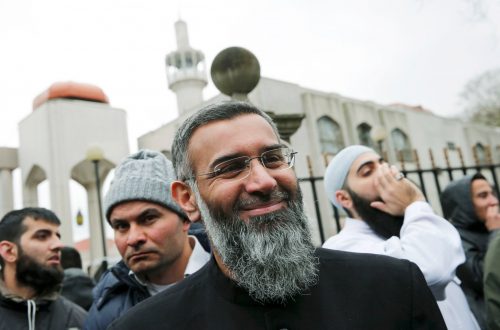Underneath the headline of this New Statesman article by Andrew Zak Williams we are offered a kind of executive summary of the argument.
The atheist community is right to pursue rational, civilised debate, and should be able to do so without being tarred as bigots.
It’s hard to quarrel with that, or indeed with the assertion made in the headline itself.
New Atheism should be able to criticise Islam without being accused of Islamophobia
Except – it’s a little like saying that people should be able to criticise Israel without being accused of antisemitism. Yes of course they should – yet that doesn’t mean that critics of Israel (or Islam) should be immune from criticism themselves no matter what they say.
The author begins by observing that atheists such as Richard Dawkins, Sam Harris and the late Christopher Hitchens have come in for a lot of flak recently because of various comments they have made about Islam. He complains that the accusations of bigotry lack accuracy and nuance. I’m sure sometimes they do, but Williams seems keen to gloss over any reasonable basis for criticism (for example some of the problems with Dawkins I discussed here). He says:
Surely, rational discourse should be permitted to tiptoe cautiously along the hallowed corridors of the house of Islam without the guards frogmarching it out, bellowing allegations of racism and bigotry.
This flattening rhetoric sneeringly suggests that Islam is surrounded by uncritical defenders with hair trigger reflexes. It certainly has a fair few of those, and I can think of several disgraceful examples of people being accused of Islamophobia on the most spurious grounds, people who are in fact deeply concerned about prejudice against Muslims but who are also passionate about human rights and freedom of expression. However among those who have criticised Richard Dawkins, for example, is the Council of Ex-Muslims’ Forum, not an organisation known for being particularly protective of Islam.
Here’s an extract from a piece by one of the other atheists Williams discusses, Sam Harris, to give a flavour of his views:
The only future devout Muslims can envisage — as Muslims — is one in which all infidels have been converted to Islam, politically subjugated, or killed. The tenets of Islam simply do not admit of anything but a temporary sharing of power with the enemies of God. Devout Muslims can have no doubt about the reality of Paradise or about the efficacy of martyrdom as a means of getting there. Nor can they question the wisdom and reasonableness of killing people for what amount to theological grievances. In Islam, it is the moderate who is left to split hairs, because the basic thrust of the doctrine is undeniable: convert, subjugate, or kill unbelievers; kill apostates; and conquer the world.
It appears to me to be true that more moderate Muslims seem to have to work harder to square their world view with their religion. But other religions also have some rather dubious raw material to contend with, and what is really concerning to me about Harris’s words here is the way he could be taken to imply that terrorists such as those involved in 9/11 are not simply acting in the name of Islam, but are acting in a way which must gain the tacit approval of any serious Muslim.
Returning to the New Statesman article, Williams continues to make potentially valid points in a rather tendentious way:
Cannot we not agree that the real issue is whether the critiques of Islam proffered by today’s prominent atheists are correct? For instance, does Islam fall short when it comes to women’s rights? Does it trample free speech while enforcing its own precepts, by the sword if necessary? By all means, apologists may disagree with the likes of Harris and biologist Jerry Coyne. But what signal is sent by a refusal to permit the issues to be even debated?
Yes, it is not just legitimate but necessary to stand up for women’s rights, women like Amina in Tunisia, the rape victim sentenced to be lashed in the Maldives, and the women whose experiences were to be described in the postponed Panorama programme on Shariah courts in Britain. I feel no need to be respectful or tolerant of this incoherent and infuriating exposition of the relationship between Islam and feminism, much less of the pronouncements of people like Haddad.
But it is important to note here that there are plenty of Muslims and non-Muslims who may be somewhat critical of Dawkins and co yet also MUCH more critical of these abuses. And Williams is setting up a straw man I seem to be encountering again and again – the assertion or implication that if you are criticising a critic of Islam you are an enemy of free speech. Of course too often free speech is put under threat in the name of Islam, but that doesn’t mean that critics of the New Atheists (many of them also atheists) have any wish to silence them, just to argue with them.
Towards the end of his argument Williams states:
And to resort to the tag “Islamophobia” is justified only if you adapt a bizarre definition of the word that is satisfied merely if the religion is held up to scrutiny, rather than its people being held up to prejudice.
So this seems a good point to insert a reminder of a recent retweet which alarmed even Dawkins’ admirers:
RT @J_P_70: @RichardDawkins I was going to the Maldives, but cancelled trip. Going to Cancun instead. No muslims there I hope! #maldives #fuckyou #islam …)
I’ll conclude with a rejoinder to the quote I opened with:
The Muslim community, and others, are right to express reasoned concerns about the way some critics of Islam express themselves without being tarred as intolerant and deceitful extremists, eager to clamp down on free speech, or as apologists for abuses carried out in the name of Islam.


